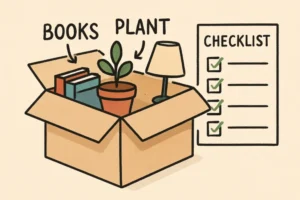In the realm of behavioral health, recovery often involves more than just treating addiction—it requires unraveling the complex threads of mental illness that frequently accompany substance use. If you or a loved one is struggling with both, choosing a dedicated dual diagnosis center Bakersfield is one of the most important decisions you can make toward lasting healing.
Dual diagnosis—also known as co-occurring disorders—describes the condition of having both a mental health disorder and a substance use disorder simultaneously. This intersection is more common than most realize. According to the National Institute on Drug Abuse (NIDA), nearly 50% of individuals with a substance use disorder also suffer from a co-occurring mental health issue such as depression, anxiety, PTSD, or bipolar disorder.
In Bakersfield and throughout Kern County, access to specialized dual diagnosis treatment is not just a luxury—it’s a necessity. Integrated care is the gold standard, and local treatment providers are stepping up with comprehensive, individualized, and evidence-based programs that treat the whole person—not just isolated symptoms.
What Is Dual Diagnosis?
Dual diagnosis is not a separate diagnosis itself but a term used to describe someone who simultaneously experiences both a mental illness and a substance use disorder (SUD). One condition may have triggered the other, or both may have developed independently—but without treating both together, the chances of relapse increase significantly.
Common combinations seen in dual diagnosis cases include:
- Alcohol addiction + depression
- Opioid use disorder + anxiety disorder
- Methamphetamine addiction + schizophrenia
- Cannabis use + bipolar disorder
- Cocaine abuse + post-traumatic stress disorder (PTSD)
Each case presents unique challenges that require an integrated treatment approach, which is exactly what a specialized dual diagnosis center in Bakersfield provides.
Why Integrated Treatment Matters
Historically, mental health and addiction services were treated in separate silos. A person with co-occurring disorders might be told to “get clean” before addressing depression—or vice versa. This fragmented care model has proven not only ineffective but also harmful.
Integrated treatment means both the mental health and substance use aspects are addressed at the same time, by the same team, within the same facility. This coordinated care results in better outcomes, lower relapse rates, and improved quality of life.
In Bakersfield, dual diagnosis centers recognize that addiction and mental illness are intertwined, often feeding into one another in a destructive loop. By targeting both conditions with personalized therapy, psychiatric care, medication management, and support services, individuals are better equipped to break that cycle.
Signs You May Need a Dual Diagnosis Center
Recognizing when you or a loved one needs specialized dual diagnosis treatment can be life-saving. Standard addiction programs may fall short if mental illness is untreated—and vice versa.
You might benefit from a dual diagnosis center Bakersfield if you experience:
- Repeated relapse after addiction treatment
- Unexplained mood swings, depression, or anxiety
- Difficulty functioning without drugs or alcohol
- Past trauma or PTSD symptoms
- Episodes of paranoia, hallucinations, or delusions
- Suicide ideation or self-harming behavior
- Overuse of substances to manage mental distress
- Trouble with interpersonal relationships or employment due to mental instability
These signs suggest that both mental health and addiction require simultaneous attention. Ignoring one side of the equation only prolongs the suffering.
What to Expect from Dual Diagnosis Treatment in Bakersfield
A reputable dual diagnosis center offers comprehensive care delivered by a multidisciplinary team. This often includes addiction counselors, psychiatrists, therapists, nurses, and case managers working collaboratively to ensure no part of your treatment is overlooked.
Key components typically include:
1. Medical Detox (if needed)
For individuals physically dependent on substances, medically supervised detox ensures safety and comfort during withdrawal. Detox is often the first step before engaging in deeper therapeutic work.
2. Psychiatric Evaluation & Diagnosis
A thorough mental health assessment is conducted to identify underlying disorders—many of which may have been undiagnosed or misdiagnosed in the past.
3. Individual Therapy
Licensed therapists use evidence-based approaches like Cognitive Behavioral Therapy (CBT), Dialectical Behavior Therapy (DBT), and trauma-informed care to address core psychological issues.
4. Medication Management
Psychiatric medications such as antidepressants, mood stabilizers, or antipsychotics may be prescribed as part of a balanced recovery plan.
5. Group Therapy
Peer-led and clinician-guided groups allow individuals to share experiences, develop coping skills, and build accountability.
6. Dual Diagnosis-Focused Curriculum
Education around how mental illness and addiction interact helps clients understand their conditions and how to manage both proactively.
7. Family Counseling
Family involvement is often crucial, especially in helping rebuild relationships and support systems that were damaged by years of untreated illness and addiction.
8. Aftercare Planning
Long-term success requires a plan for life after residential or outpatient treatment. Dual diagnosis centers in Bakersfield typically offer referrals for outpatient therapy, sober housing, alumni programs, and community resources.
Unique Advantages of a Bakersfield-Based Dual Diagnosis Center
Bakersfield offers a strong network of behavioral health providers, with several centers specifically equipped to handle dual diagnosis clients. The local setting provides advantages that enhance recovery outcomes.
- Local access to care: For Bakersfield residents, treatment close to home allows for greater family involvement, fewer travel barriers, and smoother aftercare transitions.
- Specialized providers: Many centers are staffed with addiction psychiatrists and trauma-informed therapists who understand the specific needs of dual diagnosis populations.
- Cultural competence: Facilities often cater to the diverse demographics of Kern County, with services available in Spanish and attention to cultural factors.
- Continuum of care: From detox to outpatient support, you can find a full spectrum of care options without needing to leave the area.
- Affordable treatment: Some centers accept Medi-Cal or offer sliding-scale options, making dual diagnosis care more accessible than ever.
Choosing a dual diagnosis center Bakersfield is more than a practical choice—it’s a life-changing investment in comprehensive, compassionate recovery.
Overcoming Stigma and Getting Help
One of the greatest barriers to dual diagnosis treatment is stigma—the shame associated with mental illness, addiction, or both. Many individuals suffer in silence for years, afraid of being judged or misunderstood. But seeking help is a sign of strength, not weakness.
At reputable centers in Bakersfield, clients are treated with dignity and respect. There’s no blame or finger-pointing—just science-based solutions and human empathy. Whether your journey has just begun or you’ve tried treatment before, it’s never too late to get the right kind of support.
Real Stories from Real People
“I spent years bouncing between therapists and AA meetings, but nothing stuck. It wasn’t until I found a dual diagnosis program in Bakersfield that things finally made sense. They helped me see that my anxiety was feeding my addiction—and vice versa.”
“The staff didn’t just focus on getting me sober. They helped me understand why I was using in the first place. I got on the right meds, and I finally feel stable enough to enjoy life again.”
“Being in a program with others who had similar struggles was a game-changer. I wasn’t alone anymore. I had hope.”
These testimonials reflect the reality: dual diagnosis treatment works when it’s done right.
Common Co-Occurring Conditions Treated
In Bakersfield, dual diagnosis centers are equipped to handle a wide range of mental health disorders, including:
- Major depressive disorder
- Generalized anxiety disorder
- PTSD and complex trauma
- Bipolar disorder
- Obsessive-compulsive disorder
- Schizophrenia and schizoaffective disorder
- Personality disorders (such as borderline or antisocial personality)
Combined with addiction to substances like opioids, alcohol, stimulants, or benzodiazepines, the treatment plans are carefully designed to stabilize both conditions simultaneously.
Is Dual Diagnosis Treatment Covered by Insurance?
Many dual diagnosis centers in Bakersfield accept commercial insurance plans, Medi-Cal, or offer flexible payment options. Because mental health and addiction are both medical conditions, treatment is often covered under behavioral health benefits.
It’s important to verify coverage in advance, but don’t let finances be the reason you delay getting help. Most centers offer free assessments and can work with you on a plan.
Take the First Step Today
If you’re reading this and wondering whether dual diagnosis treatment is right for you, don’t wait. The longer mental illness and addiction go untreated, the harder they become to manage. But with proper care, people recover every day.
Reach out to a trusted dual diagnosis center Bakersfield and speak with someone who understands what you’re going through. You don’t need all the answers right now—you just need the courage to start the conversation.


